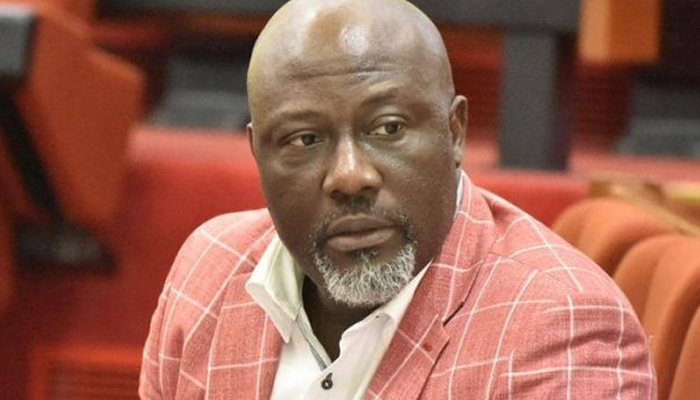The Demise of PDP and the Rise of ADC: Dino Melaye’s Perspective
Former Senator Dino Melaye, once a prominent figure in the Peoples Democratic Party (PDP), has delivered a scathing assessment of the party’s current state, declaring it “dead and buried.” Melaye contends that the PDP has been effectively commandeered by the ruling All Progressives Congress (APC), losing its independence and becoming a mere puppet of the current administration. He alleges that agents of the APC, operating from within the presidential villa, are now dictating the PDP’s actions and decisions, effectively neutralizing it as a viable opposition force. Melaye’s pronouncements paint a grim picture of a once-powerful party now rendered impotent and irrelevant in the Nigerian political landscape.
Melaye’s claims of APC infiltration extend beyond mere influence to accusations of outright control. He asserts that the PDP has been “sold” to the APC, although he questions whether any payment was even received in exchange for the party’s autonomy. This stark imagery of a party bartered away underscores Melaye’s conviction that the PDP is beyond redemption, incapable of resurrecting itself as a genuine opposition force. He dismisses any notion of the party’s revival, comparing it to a deceased individual incapable of resurrection, save by divine intervention. His language is unequivocal, leaving no room for ambiguity regarding his assessment of the PDP’s fate.
Having severed ties with the PDP, Melaye has now aligned himself with the African Democratic Congress (ADC), a party he believes holds the key to dislodging the APC from power in the next general elections. He expresses unwavering confidence in the ADC’s potential, proclaiming it the vehicle that will unseat President Bola Tinubu and usher the APC out of the presidential villa in 2027. This declaration reflects Melaye’s belief that the ADC represents a viable alternative to both the ruling APC and the now-compromised PDP, offering a platform for genuine opposition and a pathway to political change.
Melaye’s focus has shifted from the internal wrangling of the PDP to what he considers more pressing national concerns. He urges Nigerians to prioritize issues such as hunger, malnutrition, misgovernance, and maladministration, emphasizing the urgency of addressing these challenges. He dismisses further discussion of the PDP, considering it a waste of time and energy that should be directed towards tackling the real problems facing the nation. This shift in emphasis underscores Melaye’s belief that the PDP is no longer relevant to the national discourse, having been relegated to the political sidelines.
Melaye’s pronouncements, while forceful, are not without context. The PDP has faced internal divisions and struggles in recent times, leading to questions about its cohesiveness and effectiveness as an opposition party. His allegations of APC influence, while yet to be substantiated, tap into existing concerns about the nature of political competition in Nigeria. Whether the PDP is truly “dead and buried” remains to be seen, but Melaye’s departure and his subsequent championing of the ADC signal a potential shift in the political landscape.
The ramifications of Melaye’s assertions and his move to the ADC remain to be seen. His pronouncements could further weaken the PDP, emboldening its internal critics and potentially triggering further defections. Conversely, his departure could provide an opportunity for the PDP to regroup and rebuild, distancing itself from internal conflicts and reasserting its role as a credible opposition force. The ADC, meanwhile, stands to gain from Melaye’s endorsement and his political experience. Whether it can capitalize on this opportunity and emerge as a significant player in the Nigerian political arena remains an open question. The coming years will undoubtedly provide further clarity on the evolving dynamics of Nigerian politics and the long-term impact of Melaye’s dramatic pronouncements.


